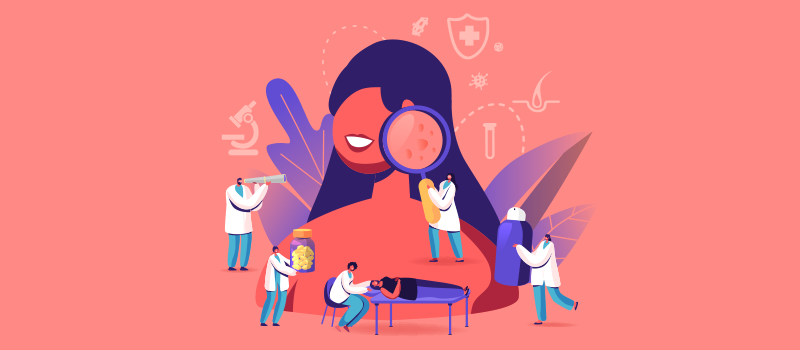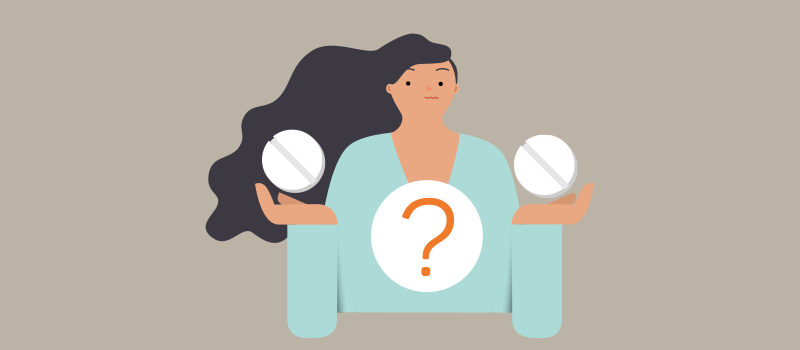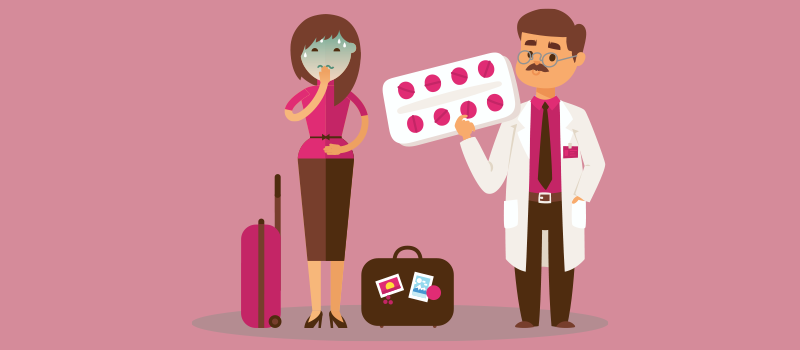What’s the Buzz
The Bee Healthy Blog
How to Recognize Human Parasites: Symptoms and Treatment

Parasites are organisms that live off other organisms called hosts. Human parasites obtain nutrition by living on or inside a human host. Parasites can range in size from microscopic organisms like Toxoplasma gondii that are invisible to the naked eye to parasitic worms like tapeworms, where adult worms can be up to 80 feet long. They typically spread through contaminated water and food or bug bites.
Infectious diseases caused by parasites are typically associated with tropical and subtropical regions in third-world countries, where they cause millions of deaths globally. However, parasitic infections do occur in the United States as well and are a public health concern. Diseases caused by parasitic species often remain undiagnosed. Yet severe infection can lead to life-threatening complications like seizures, heart failure, blindness, perforations in the intestinal wall or reproductive organs, and even death.
Please continue reading to learn about some of the signs and symptoms of parasitic infections that occur in the US and among international travelers. We will also briefly discuss the treatments and preventive measures for these parasitic diseases.
What types of parasitic diseases affect the human body?
There are mainly three types of parasites that cause disease in humans:
- Protozoa are tiny organisms with only one cell that are not visible to the naked eye. They can multiply in a living host. Examples include Entamoeba and Giardia.
- Helminths are parasitic worms that multiply in the host. Examples include hookworm disease, pinworm infection, guinea worm, tapeworm, and roundworm.
- Ectoparasites live on the host rather than inside the host. Examples include fleas, lice, and mosquitoes.
How do you know if you have human parasites or parasitic worms?
Here is some brief information about some parasitic infections, including the parasite that causes the disease, how it is transmitted, symptoms, treatment, and prevention.
Chagas Disease
Caused by: Trypanosoma cruzi.
Transmitted by: Triatomine bugs (bloodsucking insects).
Prevalent in: South America.
Symptoms: No symptoms or mild non-specific symptoms like fever, fatigue, rash, headache, body ache, loss of appetite, nausea, and vomiting. More specific signs include swelling at the site of the bite, called a chagoma. In some people, chronic Chagas disease can lead to cardiac complications like heart failure, heart rhythm abnormalities, and cardiac arrest or gastrointestinal complications like megacolon or megaesophagus.
Treatment: Antiparasitic medications such as benznidazole and nifurtimox (Lampit) that kill the parasite.
Prevention: No drugs or vaccines are available to prevent Chagas disease. Preventive measures include using insect repellant, spraying insecticides, and sleeping indoors in well-constructed, air-conditioned rooms.
Guinea Worm Disease
Caused by: Dracunculus medinensis.
Transmitted by: Contaminated soil and drinking water that contains guinea worm larvae.
Prevalent in: Remote parts of Africa.
Symptoms: When the larvae mature and the adult stage female worm is ready to lay eggs (approximately 1 year after infection), she moves to an area below the skin, usually on the legs or feet of infected people. This causes a painful, burning blister that bursts in 24-72 hours. The pregnant female worm then emerges from the blister to lay eggs.
Treatment: The guinea worm needs to be pulled out slowly over a period of days to weeks. Anti-inflammatory medications and antibiotics may be prescribed for symptom management and infection prevention.
Prevention: No drugs or vaccines are available to prevent guinea worm disease. Always drink filtered water from clean sources. Avoid eating undercooked fish or frogs.
Cryptosporidium Infection
Caused by: Cryptosporidium or Crypto.
Transmitted by: Intake of recreational or drinking water contaminated with an infected person’s poop, eating undercooked food contaminated with Crypto, or touching your mouth with hands contaminated by infected poop.
Prevalent in: Childcare centers, backpackers who drink unfiltered water, swimmers who swallow water, and people who are exposed to human poop.
Symptoms: Watery diarrhea, nausea, vomiting, stomach pain, stomach cramps, fever, dehydration, and weight loss. People with a weakened immune system can have severe cases of Crypto and potentially life-threatening Cryptosporidium infection.
Treatment: A medication called nitazoxanide is FDA approved to treat Crypto. Other treatments include anti-diarrheal medications and drinking plenty of fluids to prevent dehydration.
Prevention: Drink clean, filtered water. Avoid swallowing water in swimming pools, lakes, ponds, etc. Do not swim if you have diarrhea. Practice safe sex to avoid exposure to poop from an infected person.
Malaria
Caused by: Plasmodium species (falciparum, vivax, ovale, malariae and other species).
Transmitted by: Female anopheles mosquitoes carry and transmit the parasite through a blood meal. You cannot get malaria through skin-to-skin contact with an infected person.
Prevalent in: Africa and Southeast Asia.
Symptoms: A flu-like illness with high fever, chills, sweats, headache, muscle aches, malaise, nausea, and vomiting.
Treatment: Prescription medications like atovaquone, proguanil, artemether, and lumefantrine.
Prevention: Antimalarial drugs like chloroquine, mefloquine, primaquine, proguanil, atovaquone, tafenoquine, and doxycycline. Take measures to prevent mosquito bites.
African Trypanosomiasis (Sleeping Sickness)
Caused by: Trypanosoma brucei.
Transmitted by: Glossina species (tsetse fly).
Prevalent in: Rural Africa.
Symptoms: A sore or chancre at the site of the bite by the tsetse fly. Fever, fatigue, headache, swollen lymph nodes, and muscle aches. In the first stage of the infection, the parasites inhabit the blood and lymphatic system. In the second stage, they invade the neurological body tissues and cause symptoms like confusion and personality changes. If left untreated, sleeping sickness can lead to death in a few months.
Treatment: Hospitalization is usually required. Therapy is guided by laboratory results.
Prevention: No vaccine or drug is available to prevent African trypanosomiasis. Wear protective clothing, use insect repellent, and inspect for tsetse flies before entering a vehicle.
Giardia
Caused by: Giardia intestinalis or Giardia lamblia.
Transmitted by: Contaminated food and drinking water that contains the parasite. The parasite lives in the intestines (small intestine and large intestine) of an infected person and is passed in the stool.
Prevalent: Worldwide.
Symptoms: Diarrhea, foul-smelling and greasy poop, nausea, stomach cramps, gas, and dehydration.
Treatment: Prescription drugs like metronidazole (Flagyl), tinidazole (Tindamax), and nitazoxanide (Alindia).
Prevention: Drink clean, filtered water. Avoid swallowing water in swimming pools, lakes, ponds, etc. Clean and store fruits and vegetables properly. Wash hands regularly, especially before food preparation and eating and after using the bathroom. Practice safe sex to avoid exposure to infected poop.
How do I check myself for parasitic infections?
Most infected people cannot self-diagnose parasitic infections because the signs and symptoms are often non-specific. Moreover, it can take several weeks or longer to develop symptoms after exposure to the parasite. If you suspect any of the above-mentioned infections or infection with other parasites, contact your doctor for proper diagnosis and treatment.
References:
- https://www.cdc.gov/parasites/npi/index.html
- https://www.cdc.gov/parasites/chagas/index.html
- https://www.cdc.gov/parasites/guineaworm/index.html
- https://www.cdc.gov/parasites/crypto/index.html
- https://www.cdc.gov/malaria/about/faqs.html
- https://www.cdc.gov/parasites/sleepingsickness/index.html#
- https://www.cdc.gov/parasites/giardia/index.html












SOCIAL